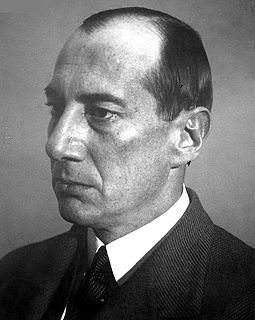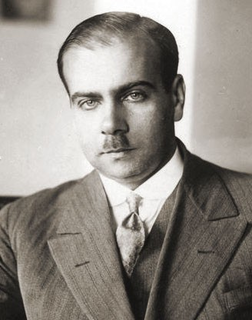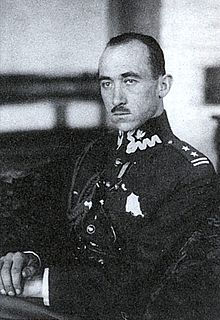 W
WJózef Beck was a Polish statesman who served the Second Republic of Poland as a diplomat and military officer, and was a close associate of Józef Piłsudski. Beck is most famous for being Polish foreign minister in the 1930s, when he largely set Polish foreign policy.
 W
WMarian Stanisław Chodacki – certified colonel of the infantry branch of the Polish Army under the Second Republic, diplomat, the last Commissioner General of the Republic of Poland in the Free City of Gdańsk in the years 1936-1939, executive director of the Józef Piłsudski Institute of America in the years 1949-1951.
 W
WWiktor Tomir Drymmer (1896–1975) was a Polish Army colonel and intelligence officer.
 W
WWitold Józef Dzierżykraj-Morawski (1895—1944) was a Polish military commander, diplomat and a Colonel of the Polish Army.
 W
WHenryk Floyar-Rajchman was a Polish statesman and a founding member of the Józef Piłsudski Institute of America for Research in the Modern History of Poland created in New York City in July 1943.
 W
WStefan Frankowski was a Polish commodore, posthumously promoted to counteradmiral. An officer of surface naval ships, from 1908 to 1917 he served in the Russian Imperial Navy Navy and participated in the First World War. Later he joined the Polish Navy and commanded a squadron of torpedo boats, was the commander of the Polish Navy NCO School, and was chief of Director Staff of Polish Navy. During the Invasion of Poland of 1939 he was a commander of Naval Coast Defence. Taken prisoner of war by the Germans, he died in captivity in 1940.
 W
WGeneral Wacław Jędrzejewicz was a Polish Army officer, diplomat, politician and historian, and subsequently an American college professor.
 W
WLt. Col. Jan Kowalewski was a Polish cryptologist, intelligence officer, engineer, journalist, military commander, and creator and first head of the Polish Cipher Bureau. He recruited a large staff of cryptologists who broke Soviet military codes and ciphers during the Polish-Soviet War, enabling Poland to weather the war and achieve victory in the 1920 Battle of Warsaw.
 W
WWitold Łokuciewski was a Polish fighter ace of the Polish Air Force in World War II who was given the nickname Tolo.
 W
WPiotr Leszek Łukasiewicz is a Polish diplomat, Colonel of the Polish Armed Forces, political scientist; ambassador to Afghanistan (2012–2014).
 W
WAndrzej Marecki was a Polish military officer. He was a colonel in the Polish Army, lecturer in tactics and member of the Polish General Staff during World War II. He died in the controversial 1943 Gibraltar B-24 crash.
 W
WIgnacy Hugo Stanisław Matuszewski was a Polish politician, publicist, diplomat, Minister of Finance of the Second Polish Republic, colonel, infantry officer and intelligence agent of the Polish Army, member of the International Olympic Committee.
 W
WIzydor Modelski was a Polish spy and a lieutenant general of the Polish Army. Modelski also completed a doctorate in philosophy at the University of Lviv in 1917. In 1946, he was sent to the United States to establish a spy ring. Defying an order to return to Poland in 1948, he testified about his actions to the House Un-American Activities Committee in 1949.
 W
WLudwik Hieronim Morstin was a soldier, diplomat, editor and poet.
 W
WCount Jerzy Józef Henryk Potocki was a Polish nobleman, captain of the cavalry and diplomat. His parents were Roman Potocki, Third Ordynat of Łańcut, and Elżbieta Matylda Radziwiłł. He was the grandson of Alfred Józef Potocki and great-great-grandson of Jan Potocki. On January 8, 1919 he joined the Polish Army after the dissolution of the Austro-Hungarian Empire and Army, was assigned to the General Staff and appointed military attaché in Budapest.
 W
WTadeusz Schaetzel de Merxhausen (1891–1971) was a Polish Army colonel, intelligence officer, Promethean leader, diplomat and politician.
 W
WFlorian Siwicki was a Polish military officer, diplomat and communist politician. He was a general in the Polish Army and Minister of Defense of Poland from 1983 to 1990.
 W
WAntoni Szymański was a Polish Army general the last prewar Polish military attaché in Berlin (1932-1939). On the night of 5–6 September 1939, he left Berlin for Copenhagen, then went to Wilno via Stockholm and Helsinki. He fought against the Germans at Lwów. After the surrender of Lwów on 22 September 1939, he became a Soviet prisoner of war, and remained until 1941 in several prison camps. He was released following the Sikorski-Mayski Agreement and joined the Polish army commanded by General Władysław Anders..
 W
WBolesław Ignacy Florian Wieniawa-Długoszowski was a Polish general, adjutant to Chief of State Józef Piłsudski, politician, freemason, diplomat, poet, artist and formally for one day the President of the Republic of Poland.